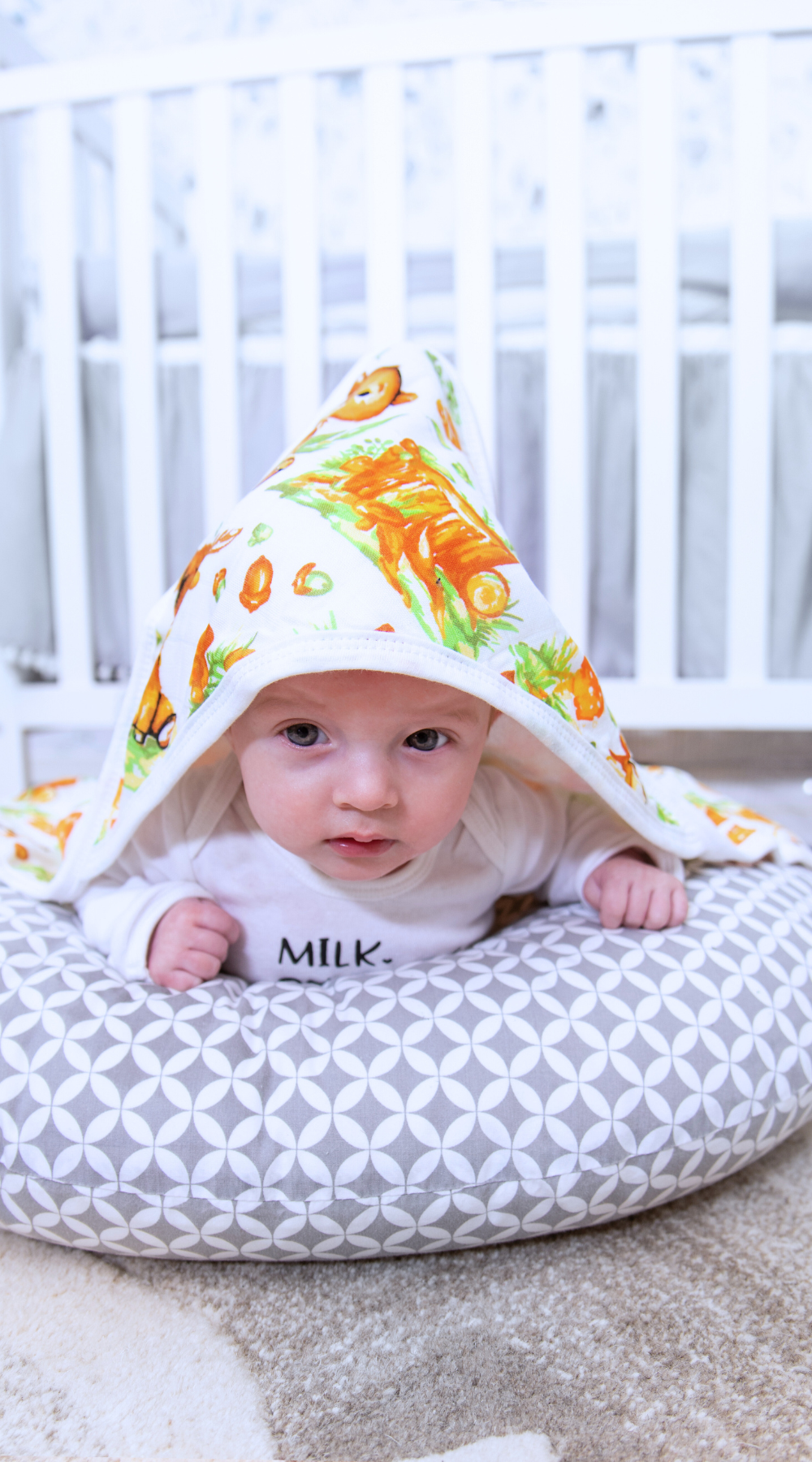Parenting Styles: How Parenting Affects Child Behavior

Your parenting style plays a very important role in your child’s overall growth and development. It can have an impact on your child's weight, as well as, how he thinks about himself. It is crucial to make sure your parenting approach promotes healthy development and growth.
Your interactions with your child and your methods of discipline will have an impact on him for the rest of his life.
4 Types of Parenting Styles That Affect a Child’s Behavior
According to researchers, there are 4 types of parenting styles: Authoritarian, Authoritative, Permissive, Uninvolved.
Each parenting style has an own approach to raising kids and can be recognized by a variety of traits.
So, what is your parenting style? Let us check.
Authoritarian Parenting Style
Parents that are strict feel that children should always abide by the rules. When a youngster inquires as to the rationale for a regulation, they are well known for responding, "Because I said so."
These parents are more concerned with obeying than they are with bargaining.
Additionally, they forbid kids from participating in hurdles or challenges that require problem-solving. Instead, they disregard a child's viewpoint while establishing the rules and applying the penalties.
Parental authority figures may substitute punishment for instruction. Therefore, they are interested in making youngsters feel bad about their mistakes rather than teaching them how to make better decisions.
You are an authoritarian parent if:
- You think that children should only be seen, not heard.
- You think that the law should be followed "my way or the highway."
- You don't think about how your child is feeling.
Negative Effects of Authoritarian Parenting
When their parents are stern and authoritarian, children have a tendency to follow the rules most of the time. But there is a cost to their compliance.
1. Issues with self-worth
With authoritarian parents, the children are more likely to experience issues with their self-esteem due to the parents’ lack of respect on the child’s opinions or feelings.
2. Aggressive or hostile
They may frequently concentrate on their resentment toward their parents rather than how they may do things differently in the future.
3. May develop a lie
Authoritarian parents are frequently stern, which may cause their kids to develop good lying skills in an effort to escape punishment.
Authoritative Parenting Style
Parents who are authoritative enforce rules and impose penalties, but they also consider their children's viewpoints. They acknowledge their children's emotions while simultaneously emphasizing that the adults are in charge in the end.
Parents who are authoritative put time and effort into avoiding behavioral issues before they arise. Additionally, they employ positive discipline techniques like reward and praise systems to reinforce good conduct.
According to research, children with strong parental role models are more likely to grow up to be responsible individuals who are at ease expressing their thoughts.
Children who are disciplined with authority are more likely to be content and successful. They are also more likely to be competent independent decision-makers and risk assessors.
You are an authoritative parent if:
- You work very hard to build and keep up a harmonious relationship with your children.
- You provide the justification for your regulations.
- You set boundaries, assign punishments, and consider your child's feelings while doing so.
Permissive Parenting Style
Loving parents are permissive. They frequently don't intervene until a significant issue arises. They adopt a "kids will be kids" attitude and are quite forgiving.
They may tend to give privileges back if a child pleads or they may let a youngster leave time-out early if he agrees to behave well, even when they do apply consequences.
You are a permissive parent if:
- Rules that you set are rarely followed.
- You don't impose penalties very frequently.
- You believe that your child can learn best if you don't interfere too much.
Negative Effects of Permissive Parenting
Parents that are liberal with their children typically act more like friends than parents. They frequently encourage their kids to talk to them about their issues, but they typically don't make an attempt to prevent wrong decisions or bad behavior.
1. Academic difficulties
Children who have lenient parents are more prone to have academic difficulties as adults.
2. Behavioral issues
Because they don't respect authority and norms, they could have greater behavioral issues.
3. Low sense of self
They frequently display poor self-esteem and may express great melancholy.
4. Health issues
Permissive parents find it difficult to control their children's consumption of junk food, thus, the children are more likely to experience health issues like obesity.
And because permissive parents sometimes don't enforce positive behaviors, including making sure a youngster brushes his teeth, the children are even more inclined to have dental cavities.
Uninvolved Parenting Style
Uninvolved type of parents often don't know much about what their kids are up to. There aren't often many rules.
Children may not receive as much parental direction, care, and attention with uninvolved parents. Usually, these parents believe that their kids should raise themselves. They don't put much effort or time into providing for the basic necessities of children.
Even though neglect by uninvolved parents might occur, it's not always on purpose. For instance, a parent struggling with mental health concerns or substance abuse disorders might not be able to consistently meet a child's physical or emotional requirements.
Other times, uninvolved parents don't understand how kids develop. Additionally, there are instances when people are just overburdened by other issues like employment, household management, and bill-paying.
You are an uninvolved parent if:
- Your youngster is not questioned about their studies or assignments.
- Rarely do you know where or with whom your child is.
- You don't spend so much time together with your child.
Negative Effects of Uninvolved Parenting
1. Self-worth issues
Self-esteem problems are more likely to plague children of absent parents.
2. Academic difficulties
They frequently perform poorly academically.
3. Behavioral issues
Additionally, they consistently display behavioral issues and are not very happy.
Conclusion

You have probably identified by now what type of parent are you and you probably don’t fall neatly into one group. You might exhibit a combination of 2 or 3 parenting styles.
But according to studies, the best parenting style is authoritative parenting.
If you had always wanted to become a good parent but fell short in your parenting style, don’t get discouraged yet.
It can be challenging for parents to maintain consistency while juggling life and parenthood. Don't therefore indulge in parental guilt or shame. That wouldn't be of any use.
There are actions you can take to become a more authoritative parent, even if you tend to associate with other parenting styles more.
You can keep a good relationship with your children while also maintaining your authority in a healthy way if you are committed to being the best role model you can be. Your authoritative manner will eventually help your child.





Leave a comment